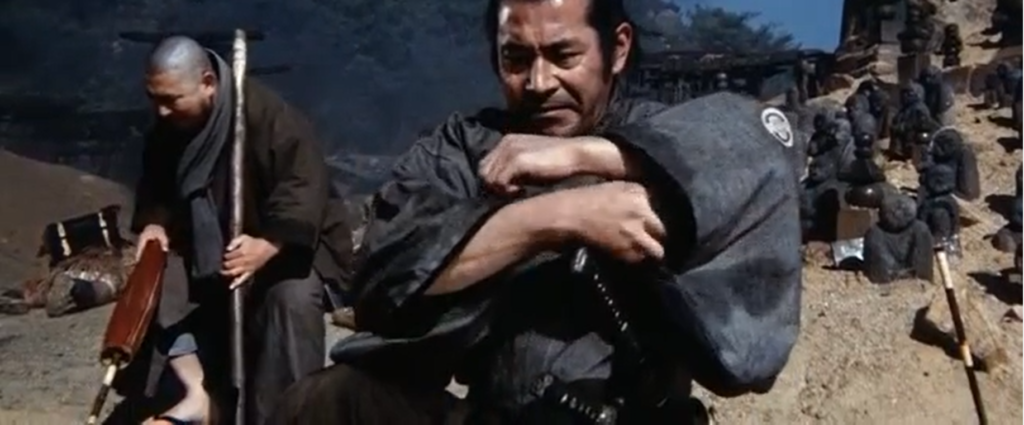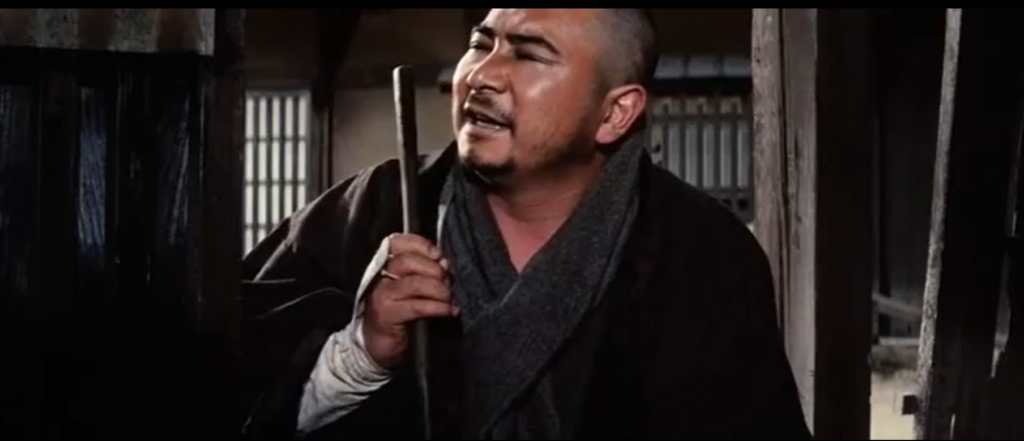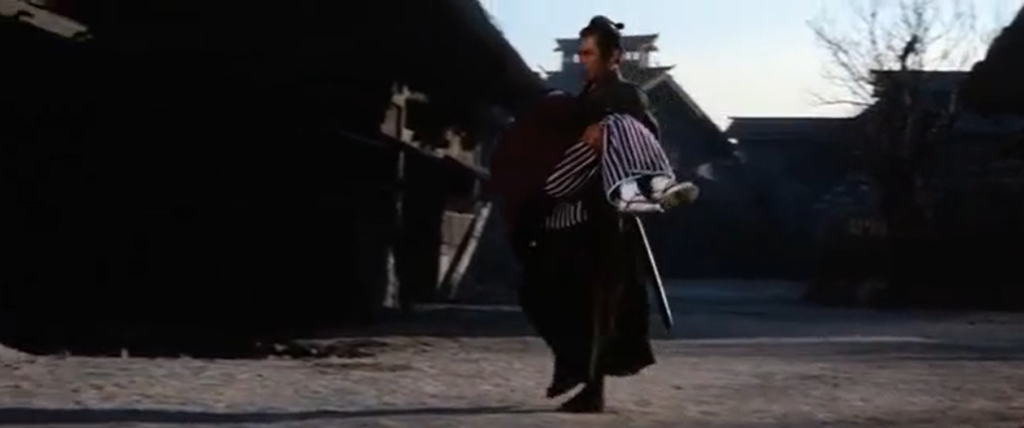“It may be peaceful in my hometown, but it’s good to be prepared.”
|

Synopsis:
Zatoichi the Blind Swordsman (Shintaro Katsu) returns to a once-peaceful village, only to find it overrun with gangsters who are battling each other for a stash of hidden gold. He temporarily teams up with bodyguard Yojimbo (Toshiro Mifune) to help rid the town of violence.
|
|
Genres:
- Blindness
- Japanese Films
- Samurai
- Toshiro Mifune Films
Response to Peary’s Review:
As Peary notes, this cult film (clearly influenced by Sergio Leone) features “broad humor”, “extreme violence”, and “two of Japan’s most popular action heroes.” The story is slow-going at first but exciting by the end, and it’s tremendous fun watching Zatoichi and Yojimbo interact.

Unlike Peary, I didn’t find Zatoichi’s whimpering or “fake modesty” annoying, but I do agree that Yojimbo spends far too much time moping around and getting drunk — you’re better off being introduced to his character in either Yojimbo (1961) or Sanjuro (1962).
Redeeming Qualities:
- Zatoichi’s elegant physical comedy

- Fine period sets

Must See?
Yes, but simply to have seen “Zatoichi the Blind Swordsman” in a film. Another might suffice.
Categories
Links:
|




One thought on “Zatoichi Meets Yojimbo (1970)”
Not a must.
~but it’s not a bad film. Its strongest point is Kihachi Okamoto’s direction. I don’t recall off-hand, but this may be the only Okamoto title that Peary lists; ~which is good because at least Okamoto’s name gets introduced. Here he has taken an overly complicated plot – way too dense for a simple ‘let’s get the gold’ story – and has made it as easy to follow as possible for the purpose of mainstream entertainment.
But I seem to recall that this is not representative of Okamoto’s work. (Several directors would make return visits to the Zatoichi canon, but this is Okamoto’s only contribution.) It’s been awhile – and now I’m curious to return to some titles – but I have a memory of being more impressed by such Okamoto films as ‘Sword of Doom’ and ‘Japan’s Longest Day’.
‘ZMY’ has so much going on in it that you might a) feel like you’re watching part two of something and have missed some exposition, or b) the film may benefit from a second viewing so you can get a better grip on the characters’ various (sometimes changing) motivations. But a single viewing will very much need you to pay attention.
This film is held in high regard as one of the best of the looong Zatoichi film series (which later became a tv show). I’m not a huge fan of the genre, but I do love such films when they’re done in a unique way (such as ‘Sanjuro’, ‘Yojimbo’, etc.). While I admire some of Zatoichi’s particular qualities, he’s a little too sentimental for me personally (even though I’m hardly opposed to sentiment).
[Note: When I lived in Japan, I often heard it had been widely believed that those with handicaps – such as blindness, etc. – were the manifestation of some previous ‘sin’ in the family and, therefore, such people were to be shunned for ‘obvious’ reasons. It’s nice to think that part of the purpose of the Zatoichi character may have been an attempt to give that cockeyed theory the heave-ho.]